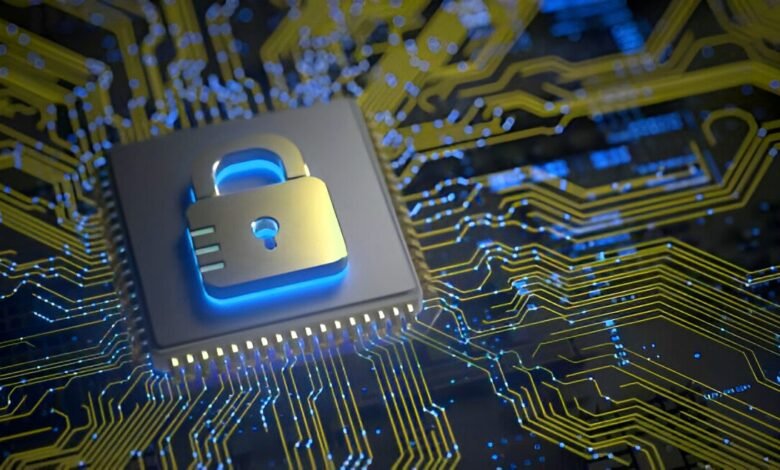How to Protect Your Digital Identity in Pakistan
This comprehensive guide will walk you through the best practices for protecting your digital identity in Pakistan, so you can navigate the digital world safely and securely.

In today’s digital age, safeguarding your digital identity has become more important than ever, especially in a country like Pakistan, where internet usage has skyrocketed. From online banking to social media profiles, your digital identity is exposed to various risks. Cybercrimes, data breaches, and identity theft have become increasingly common, and they can have devastating effects on individuals and businesses alike. This comprehensive guide will walk you through the best practices for protecting your digital identity in Pakistan, so you can navigate the digital world safely and securely.
1. Use Strong, Unique Passwords for Each Account
One of the simplest yet most effective ways to protect your digital identity is by using strong and unique passwords for each of your accounts. A strong password typically includes a combination of uppercase and lowercase letters, numbers, and special characters. Avoid using easily guessable information such as your name, birthdate, or common words.
In Pakistan, where cybercrime is a growing concern, having a weak password can expose you to potential hacking attempts. Use password management tools such as LastPass, 1Password, or Dashlane to store your passwords securely and generate complex passwords that are difficult for hackers to guess.
Tips for Creating Strong Passwords:
- Use at least 12 characters.
- Avoid using the same password across multiple platforms.
- Combine different types of characters (letters, numbers, and symbols).
- Consider using passphrases—long, memorable sentences that are hard to guess.
2. Enable Two-Factor Authentication (2FA)
Two-factor authentication (2FA) adds an extra layer of security to your online accounts. Even if a hacker gets hold of your password, they will not be able to access your account without the second factor, which could be a one-time code sent to your phone or email.
In Pakistan, 2FA is supported by most popular platforms like Facebook, Google, Instagram, and Twitter, making it easy for you to activate this feature. Setting up 2FA can significantly reduce the chances of unauthorized access to your accounts, protecting your personal and financial information from cybercriminals.
How to Enable 2FA:
- Google: Go to your Google account settings, click on “Security,” and enable two-step verification.
- Facebook: In Facebook’s security settings, find the “Two-Factor Authentication” section and choose the preferred method (SMS, app, or security key).
- WhatsApp: Enable 2FA through the app’s settings under “Account” and “Two-step verification.”
3. Be Cautious of Phishing Scams
Phishing attacks are one of the most common ways cybercriminals steal personal information. These scams typically involve fraudulent emails or text messages that appear to be from trusted sources, such as your bank, a government agency, or a well-known company. They will often prompt you to click on malicious links or provide personal information like your password or credit card details.
In Pakistan, phishing scams are increasingly targeting individuals, especially through SMS or WhatsApp. These scams often promise fake rewards, discounts, or urgent requests for personal information. Always be wary of unsolicited communication, and never click on links from unknown sources.
How to Avoid Phishing Scams:
- Verify the sender: If you receive an email or message from your bank or a company asking for personal details, contact the company directly to verify the request.
- Check for spelling errors: Phishing emails often contain subtle spelling mistakes or incorrect grammar.
- Use email filters: Email services like Gmail have built-in filters that can block suspicious emails.
- Don’t click on suspicious links: Hover your cursor over links before clicking to see if the URL matches the legitimate website.
4. Use Virtual Private Networks (VPNs)
A Virtual Private Network (VPN) encrypts your internet connection, making it more difficult for third parties, such as hackers or even your ISP, to track your online activities. When using public Wi-Fi networks in Pakistan, such as those in cafes, airports, or libraries, a VPN provides an added layer of security.
By masking your IP address, a VPN helps protect your location and prevents websites from tracking your browsing habits. This is especially important when using unsecured networks, as it ensures that your sensitive information (such as banking details and login credentials) remains private.
Recommended VPN Services:
When choosing a VPN service, ensure that the provider has a strict no-logs policy, meaning they do not store any information about your online activities.
5. Keep Software and Devices Updated
Keeping your devices (smartphones, computers, and tablets) and software (operating systems, apps, and browsers) up to date is one of the most important things you can do to protect your digital identity. Cybercriminals often exploit vulnerabilities in outdated software to gain access to personal information or install malicious software on your device.
In Pakistan, many individuals and businesses often delay or ignore software updates, leaving their systems open to potential security breaches. Regularly check for software updates and apply them as soon as they become available.
Why Software Updates Matter:
- Security patches: Updates often include fixes for security vulnerabilities that could be exploited by hackers.
- Bug fixes: Updates also resolve other bugs that may affect the performance or security of your device.
- New features: Keeping your software up to date ensures that you have access to the latest features and improvements.
6. Be Mindful of Your Social Media Presence
Social media platforms like Facebook, Instagram, Twitter, and LinkedIn are valuable tools for connecting with people, but they can also expose you to identity theft and privacy issues if not used carefully. In Pakistan, where social media usage is widespread, many users unknowingly share too much personal information online.
It’s essential to adjust the privacy settings of your social media accounts to control who can see your posts and personal details. Avoid oversharing sensitive information such as your full address, phone number, or travel plans.
Tips for Securing Your Social Media Accounts:
- Review privacy settings: Make sure your posts are visible only to your trusted circle.
- Limit personal details: Avoid sharing excessive personal information, such as your birthdate, full address, and workplace.
- Be cautious with location tagging: Refrain from tagging your location in real-time, especially when you’re not at home.
- Use a strong password and enable 2FA: These steps will make it harder for attackers to take over your accounts.
7. Monitor Your Online Presence Regularly
In Pakistan, many individuals aren’t fully aware of how much personal information is available about them on the internet. Search engines, social media platforms, and data brokers collect information about you that could be used for malicious purposes.
It’s essential to monitor your digital footprint regularly. You can start by searching for your name on popular search engines like Google and checking what information is publicly available. If you come across outdated or inaccurate data, take steps to have it removed or updated.
Tools for Monitoring Your Digital Identity:
- Google Alerts: Set up alerts for your name or other personal identifiers to monitor when they appear online.
- HaveIBeenPwned: This tool checks if your email address or phone number has been involved in a data breach.
- Social Media Audit: Review the visibility of your social media posts and clean up any outdated or unnecessary content.
8. Avoid Using Public Wi-Fi for Sensitive Activities
Public Wi-Fi networks, while convenient, are also prime targets for cybercriminals. In Pakistan, many public spaces like shopping malls, airports, and coffee shops offer free Wi-Fi, but these networks are rarely secure.
When connected to public Wi-Fi, it’s easy for hackers to intercept your data and steal sensitive information such as login credentials, credit card details, and personal messages. Always avoid conducting sensitive activities, such as online banking or shopping, while connected to public Wi-Fi.
How to Stay Safe on Public Wi-Fi:
- Use a VPN: A VPN encrypts your internet traffic, preventing hackers from spying on your online activities.
- Disable sharing: Turn off file sharing and other sharing options when using public networks.
- Use HTTPS websites: Ensure that the websites you visit use HTTPS encryption for secure connections.
9. Protect Your Financial Information
With the rise of online banking and digital payment methods in Pakistan, protecting your financial information is critical. Fraudulent activities such as credit card fraud and online banking scams are increasingly common.
Steps to Protect Your Financial Data:
- Enable 2FA on financial accounts: Always use two-factor authentication on your banking apps or online payment platforms like PayPal or JazzCash.
- Monitor bank statements regularly: Keep a close eye on your financial statements for any unusual transactions.
- Use secure payment methods: When shopping online, always use secure and trusted payment methods like Stripe or PayPal instead of entering your credit card details directly.
10. Be Aware of Data Privacy Laws in Pakistan
Pakistan has made strides in developing data protection regulations, with the Personal Data Protection Bill under consideration by the government. However, the enforcement of these laws is still in progress. As a result, it’s essential to stay informed about your rights and take steps to protect your personal data proactively.
Key Points to Remember:
- Opt-out of unnecessary data collection: Many apps and websites request personal information that is not required. Always review permissions and opt-out of unnecessary data sharing.
- Be cautious about third-party apps: Limit the use of third-party applications that request access to your personal data, such as contacts, camera, and microphone.
Conclusion
Protecting your digital identity in Pakistan requires a combination of vigilance, smart practices, and the use of the latest security technologies. By following the steps outlined above—such as using strong passwords, enabling two-factor authentication, staying cautious of phishing scams, and keeping your software updated—you can safeguard your online presence and minimize the risks associated with cyber threats.
In an era where personal data is constantly under threat, being proactive about your digital security can make all the difference. Stay informed, remain cautious, and always prioritize the protection of your digital identity.











